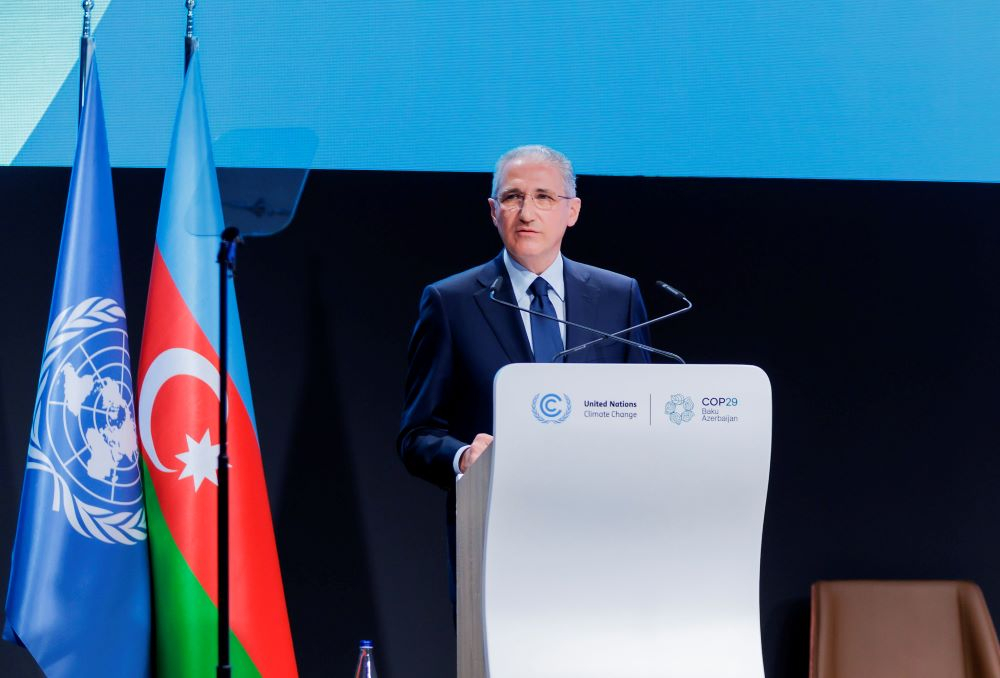This article is also available in Italian / Questo articolo è disponibile anche in italiano
After a troubled launch, as countries scrambled to discuss a few of the trickier points of the negotiations, COP29 in Baku opened with an unexpected announcement: from a proposal by President Mukhtar Babayev, countries adopted standards for the new carbon credit system. A mechanism that, according to the International Emissions Trading Association, each year would reduce the cost of implementing national climate plans by $250 billion and absorb 5 billion tons of C0₂.
Despite unlocking a nearly decade-long stalemate, the decision spawned a wave of criticism from a large part of civil society: the small group of experts (Supervisory Body), appointed to outline the mechanism's methodology and standards, independently adopted the package that on Monday, November 11, without a negotiating phase, and brought the countries into agreement. An approach described by the negotiators themselves as unusual, which while accelerating the process could set an important negotiating and political precedent.
Supervisory body circumvents UN governance
When the expert group voted for the framework of Article 6.4 of the Paris Agreement (i.e., the methodologies and technical criteria on which the new global carbon credit mechanism will be based) last October 10, Olga Gassan-Zade was the only member of the body to publicly express some concern. She had stated in a post on LinkedIn that she was not confident that the creation of a mechanism that could circumvent the governance of the United Nations (the CMA, the set of delegations that signed the Paris Agreement) was a good idea. In sum, from mere recommendations to be negotiated at the COP, the standards have become “internal” rules of the body that require no procedural approval.
“The adoption of the standards on a technical basis, confirmed by the COP yesterday with the adoption of a proposal by the COP president which effectively gave the green light to the package, will surely leave aftershocks. Many voices have already been raised from civil society in this regard,” Jacopo Bencini of EUI Carbon Markets Hub, European University Institute and president of the Italian Climate Network association, tells Renewable Matter. “On the one hand, members of the Supervisory Body have acted in expansion of their original mandate to get the job done and launch the new mechanism, which had been stalled for almost a decade. On the other hand, some countries and many associations fear that the affair will set an operational and political precedent that should be handled with caution. In addition to that, there are comments on the merits of the approved standards, which however, objectively, are among the most comprehensive emerged in recent years and undoubtedly the first, along with CORSIA standards for aviation, to be marked UN.”
Reactions from negotiators and civil society
Countries, project developers, and private investors had been waiting for years for a rulebook to be completed so that they could begin to invest seriously in the carbon credit market, which until now has been carried on by a voluntary market affected by scandals over the integrity and social impacts derived from credits. Despite the tools introduced by the regulatory body to mitigate these risks, civil society still appears highly skeptical about the real benefits the carbon market promises to bring, especially to the global South.
“Bulldozing through the Carbon Market methodology and text on the first day of the COP without any discussions and opportunity to negotiate by the Parties undermines the CMA, the COP and subverts the entire UNFCCC COP process”, said Souparna Lahiri of the Global Forest Coalition. According to Eduardo Giesen, regional coordinator of the Global Campaign to Demand Climate Justice, “For more than two decades of operation, carbon markets have proven to be a completely useless mechanism for reducing emissions, a source of shady business that has only served large emitters to evade their responsibility and deepen the climate crisis by promoting projects that generate impacts and violate the rights of communities”. Kevin Conrad, executive director of the Coalition for Rainforest Nations and former climate envoy for Papua New Guinea, agrees with the new standards, but not with the way they were approved.
Cover: Mukhtar Babayev © Ministry of Environment - Rwanda



